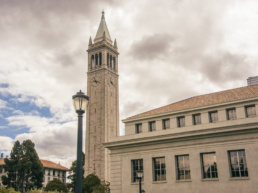On the World Portuguese Language Day, FLAD and Camões Institute joined hands for another initiative to promote Portuguese language and culture in the United States.
The Luso-American Development Foundation (FLAD) and Camões Institute signed on Tuesday a new cooperation protocol to strengthen the study, teaching, and research of the Portuguese language and culture in the United States of America and increase access to curriculum programming and evaluation in Portuguese.
FLAD and Camões Institute, long-standing partners, will strengthen the coordination and cohesion of the different regional centers for teaching the Portuguese language and invest in strategies to promote, improve, and strengthen the study of the language. The goal is to have more teachers, students, and researchers of the Portuguese language and culture in the USA.
“As we celebrate the World Portuguese Language Day, it is a priority for FLAD to cooperate with Camões Institute to support the teaching of the Portuguese Language in the U.S. While contacting with the United States, I took notice of the great interest for the Portuguese Language among the new generations of the Portuguese-American community. For that reason, we have to work to expand the number of schools that teach Portuguese and promote training for our Portuguese professors in the United States. It is also important that they have the possibility to know Portuguese literature, so we decided to improve the range of Portuguese books in those schools” – Rita Faden, FLAD’s President.
Why is it so important to promote the study and teaching of the Portuguese language in the USA?
There are currently 18.627 students in primary and secondary education and 1.595 students in higher education, supported by 386 and 18 teachers.
In the last 10 years, the number of students has increased by 100%. The importance given by the educational system to the Portuguese language is realized in its accreditation as a language of access to higher education, through the National Examinations in World Languages (NEWL) in Portuguese.
What initiatives does the protocol preclude?
- The joint promotion of NEWL in Portuguese, in partnership with the American Councils for International Education, which credit Portuguese language learning for access to higher education in the USA. To increase the number of students enrolled in the NEWL exam in Portuguese, the costs of participation of Portuguese-descendant students will be financed;
- The joint development of training programs for Portuguese language and culture teachers, through the Coordination of Portuguese Teaching Abroad that Camões, I.P. maintains in the USA;
- The donation of pedagogical materials for the teaching of the Portuguese language in that country, a collaboration that, in 2019, has already allowed the distribution of 54 school libraries, and promoted research in Portuguese language and culture through the American Councils Research Center and the American Academy of Arts and Sciences (AAAS).
FLAD and the Camões Institute are also considering the creation of a new Chair at a U.S. university, which could join the Camões Institute Chair at the Berkeley University, California, called “Ana Hatherly”.
These initiatives will strengthen the positioning of the Portuguese language within the American educational system, as a foreign and heritage language, promote the Portuguese language and culture among American society and, at the same time, foster cohesion within the important Portuguese-American community in the USA, valuing forms of expression of its identity.
****
Camões – Institute of Cooperation and Language, I.P. is a public institute under the Portuguese Ministry of Foreign Affairs that has the mission of proposing and implementing the Portuguese cooperation policy and the policy of teaching and dissemination of Portuguese language and culture abroad.
Related Posts
November 17, 2025
Projects Selected for the UP Program – Higher Education 2026
FLAD allocates €30,000 per project to…
November 5, 2025
Speaking Portuguese has become an advantage for Portuguese descendants in the U.S.
A new study on Portuguese-American…


